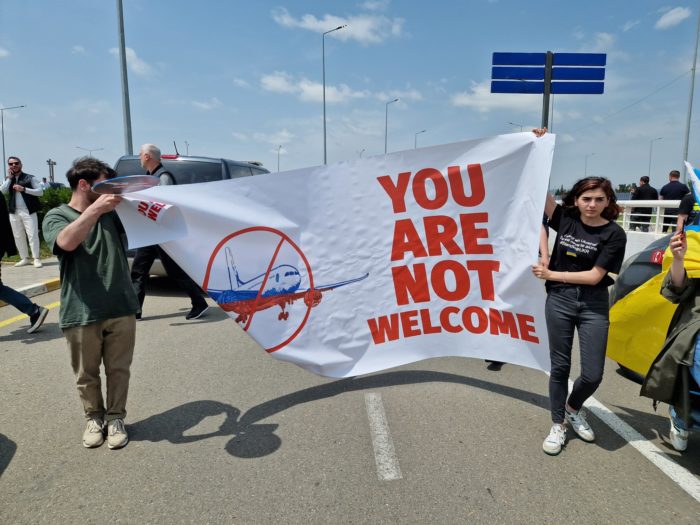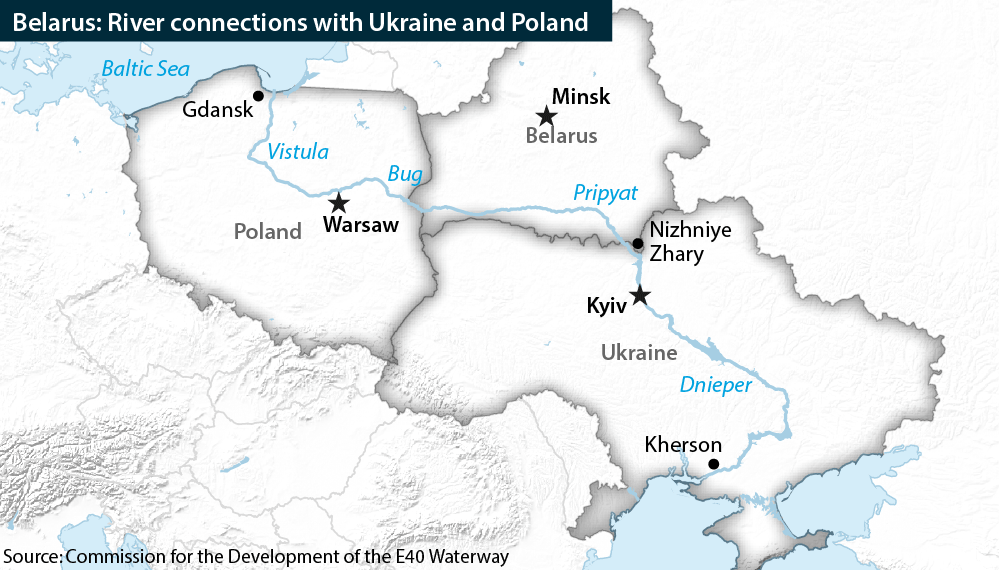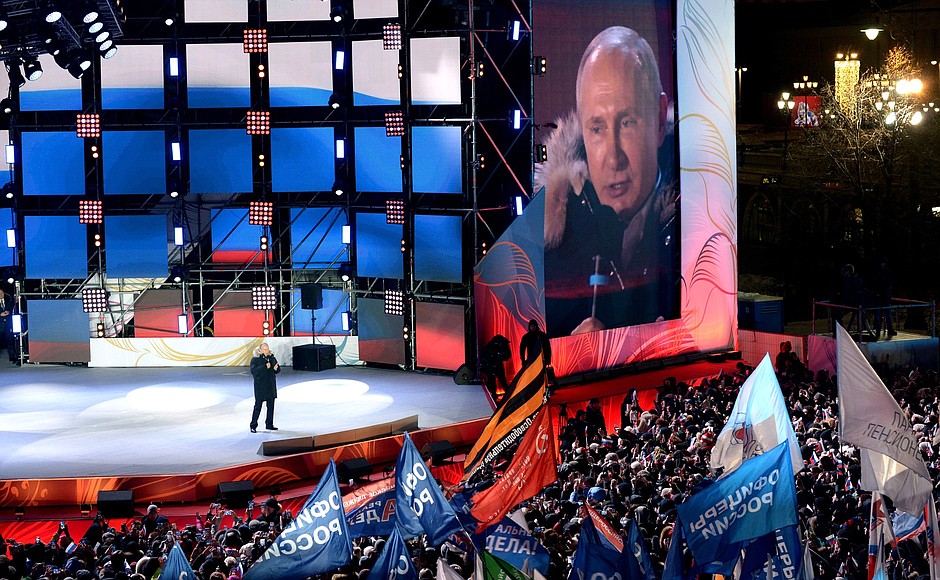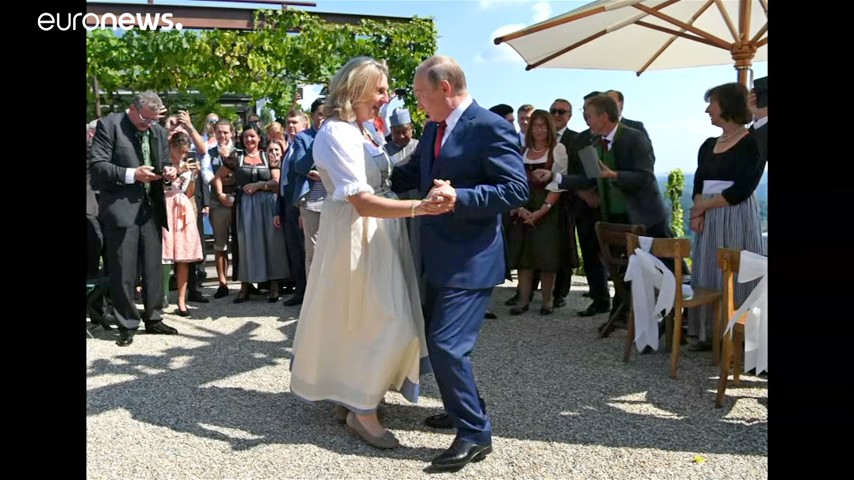Georgia's ruling party, the Georgian Dream, has deviated from this path, causing internal strife and global turbulence. The gradual shift in political orientation has been unnoticed by a significant part of the population due to extreme political polarization between the ruling party and the opposition. The ruling party’s focus on dismantling the political opposition has left Georgian society without a viable alternative, indirectly undermining Georgia’s democracy.
According to a report published by the European Council on Foreign Relations (ECFR), a think tank, the Georgina Dream party is aligning Georgia with Russia’s sphere of influence. The report, released in December 2022, highlights a series of actions taken by Georgia’s ruling coalition in recent years, particularly within the past 18 months, which appear to be intentionally distancing the country from the West and gradually shifting it closer to Russia’s sphere of influence. The report specifically identifies Bidzina Ivanishvili, a former prime minister and billionaire, as a key figure driving this shift towards Moscow.
“Foreign agent” law triggers mass protests
In early March 2023, the Georgian parliament gave preliminary approval to a draft law “On transparency and foreign influence” that would require NGOs and media outlets receiving more than 20% of their funding from abroad to register as “agents of foreign influence”. The bill sparked massive protests in the capital, with thousands of demonstrators gathering outside Tbilisi’s parliament building, waving not just the Georgian flag but also that of the European Union.
Georgia’s activists and NGOs see the bill as a blatant copy of a Russian law that has been used to crack down on civil society. Georgian President Salome Zourabichvili called the bill a Russian provocation and vowed to veto it.
“Those who support this law today, all those who voted for this law today are violating the Constitution. All of them are alienating us from Europe. I said on day one that I would veto this law, and I will do just that!” she stated.
Georgia’s parliament was actually considering two bills that would have forced groups and individuals who receive funds from foreign sources to register as “foreign agents” or “agents of foreign influence”. Those who did not comply would be fined $9,600 US or jailed for up to five years. Human rights activists stated that the bills were a serious danger to human rights in Georgia, silencing dissenting voices in the country.
Tens of thousands protesters took to the streets of the capital Tbilist; riot police used tear gas and water cannons to disperse the protesters. The protests were important because they were not driven by political divisions and were mainly led by students, civil society groups, and the media. On March 10, 2023, in a dramatic turn of events, Georgian lawmakers voted 35-1 against the controversial bill.
[embedyt] https://www.youtube.com/watch?v=H3IiBuESwNA[/embedyt]
However, the ruling party started a smear campaign against the protesters, calling them “satanists” or influenced by the opposition party. The Education Minister was replaced, which is seen as a move to tighten control over students.
Protesters rally in support of political prisoners
In April 2023, thousands of opposition supporters rallied in Tbilisi under the slogan “Together in Europe”, demanding the release of political prisoners and the implementation of reforms required by the EU for granting Georgia a candidate status. They also accused the Georgian government of being controlled by Moscow and betraying the country’s pro-Western orientation.
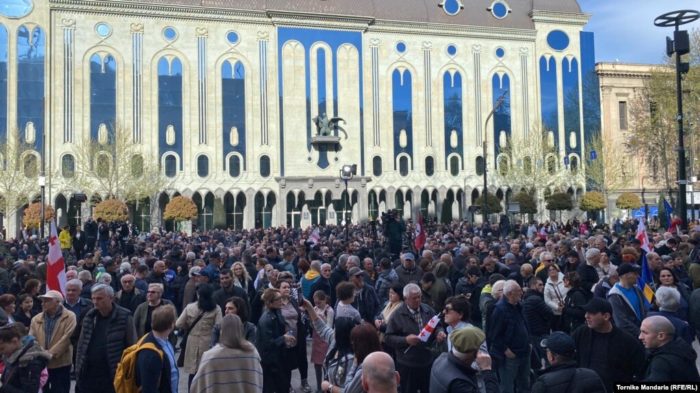
Protesters held Georgian, Ukrainian and European Union flags and a big banner that said “For a European future”. The crowd shouted “Long live Misha!”, using Mikhail Saakashvili’s nickname, who is in jail for six years for abusing power - a verdict that international rights groups have criticized as politically biased.
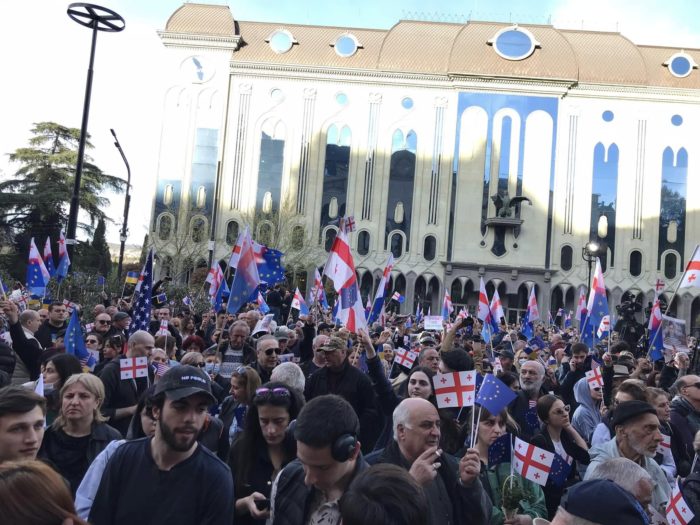
Speaking at the rally, UNM leader Levan Khabeishvili said protesters wanted the release of political prisoners and implementing reforms that the EU asked for as a condition for giving Tbilisi a formal candidate status.
Former Georgian president Giorgi Margvelashvili also addressed the crowd:
“The Georgian government is being controlled from Moscow and our obligation is to save our homeland from Russian stooges. We are freedom-loving people, part of the European family, we reject Russian slavery!”
Russia lifts ban on direct flights to Georgia
On May 10, 2023, Russian President Vladimir Putin signed decrees abolishing visas for Georgian nationals and lifting a ban on direct flights between Russia and Georgia. The decrees came into effect on May 15, 2023. Russia had suspended flights to Georgia in June 2019 due to protests in Tbilisi over a Russian lawmaker’s speech in the Georgian parliament. Georgia had unilaterally abolished visas for Russians in 2012.
The US threatened Georgia with sanctions over its alleged cooperation with Russia amid the war in Ukraine and the crackdown on opposition and media. Georgian Prime Minister Irakli Garibashvili underlined that he was working for peace and stability in the region and denied any collusion with Moscow.
Georgian Airways, the country’s flag carrier, resumed flights to Russia, despite criticism from Georgia’s President Salome Zourabichvili. In response to this, the airline banned President Zourabichvili from its planes. Zourabichvili tweeted that Putin’s decrees were another Russian provocation.
“Resuming direct flights and lifting visa ban with Georgia is unacceptable as long as Russia continues its aggression on Ukraine and occupies our territory!”
On May 19, 2023, the first direct flight from Russia landed in Tbilisi after four years. The flight was operated by Azimuth Airline, a Russian carrier based in southern Russia. The flight carried about 70 passengers, mostly Russians fleeing the war in Ukraine.
The flight was met with protests at the airport by hundreds of opposition supporters and activists who accused the Georgian government of betraying the country’s pro-Western aspirations and siding with Russia amid its aggression against Ukraine. The protesters held Georgian and Ukrainian flags and signs denouncing Russia as an “occupant” and “terrorist”. They also chanted slogans such as “Russian plane, go f*ck yourself” and “Georgia is Europe”. Some protesters tried to block the airport entrance and clashed with the police, who detained several people.
On May 25, the founder of Georgian Airways, Tamaz Gaiashvili, announced that the airline would introduce transit flights for Russians traveling to Europe via Tbilisi. The planned destinations include Milan, Paris, Vienna, Larnaca, and Thessaloniki.
“We are set to commence these flights on June 15, and we will assess their performance. However, we anticipate sufficient demand for these routes. Traveling through Tbilisi will offer a more convenient and faster option compared to other destinations,” stated Gaiashvili.
He further mentioned that Georgian Airways is optimistic about the gradual recovery of passenger traffic between Russia and Georgia. The Georgian government has warmly welcomed this decision, and the company hopes that it will never be disrupted again, he said.
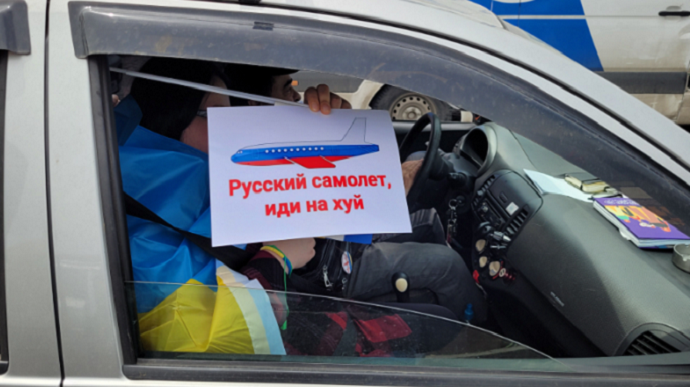
Georgia says “No!” to sanctions against Russia
On May 11, 2023, Georgian Prime Minister Irakli Garibashvili announced that Georgia had no plans to impose sanctions against Russia over its invasion of Ukraine, citing the national interests of the country. He stated that joining the financial and economic sanctions would only damage Georgia and its people more, and added that Georgia was not going to send military aid to Ukraine, but would provide humanitarian assistance and support its territorial integrity.
According to a survey by Caucasus Research Resource Centers, two-thirds of Georgians want the government to impose some kind of sanctions against Moscow. And 61% of respondents said the government should do more to support Ukraine during the war.
On May 24, 2023, Garibashvili reiterated his position that Georgia would not introduce direct sanctions against Russia, saying that it was a “sovereign decision” of the country. He underlined that Georgia was following the EU’s recommendations on how to deal with Russia and was not going to take any “emotional steps” that could harm its security and stability.
Georgian Prime Minister confirms refusal to impose sanctions against Russia
But, he stated that Georgia was not going to recognize Russia’s annexation of Crimea and its occupation of Abkhazia and South Ossetia.
The Georgian government’s stance on sanctions against Russia has sparked criticism and protests from the opposition, civil society and some Western partners. They have accused the government of betraying Georgia’s pro-Western aspirations and siding with Russia amid its aggression against Ukraine. They have also demanded the government to impose sanctions on Russia, recognize Crimea as part of Ukraine, and send military aid to Kyiv.
The Georgian president, Salome Zourabichvili, also expressed her disagreement with the government's position on sanctions against Russia, calling it a “provocation” and a “mistake”. She said that Georgia should join the sanctions against Russia as a sign of solidarity with Ukraine and as a way of protecting its own interests. She also travelled to France and Brussels to discuss the crisis in Ukraine with European leaders, despite the government’s objections.
Russia should withdraw from Abkhazia and Ossetia as part of Ukraine peace deal – Georgian President
Sergei Lavrov’s daughter in Georgia
The daughter of Russia’s Foreign Minister Sergei Lavrov, Ekaterina Vinokurova (Lavrova), and her husband Aleksandr Vinokurov, who are both sanctioned by Western countries, sparked protests in Georgia when they attended the wedding of a relative at a resort hotel in Kvareli, a popular vacation place in the wine-rich Kakheti region on May 20, 2023.

The protesters accused the couple of violating Georgia’s sovereignty and supporting Russia’s invasion of Ukraine. Protesters staged a rally outside the resort, clashing with police, who detained at least 16 people. According to media reports, some protesters threw eggs at minibuses leaving the hotel with the Lavrov-Vinokurov retinue, shouting: “Russians have no place in Georgia!”
Police officers protecting the resort site detained 17 persons who were later released. The police then dispersed the protesters and escorted the couple out of the country. The incident came a day after direct flights between Russia and Georgia resumed for the first time since 2019, which was also met with protests and criticism by the Georgian president and opposition.
Georgia authorities manipulating society
Georgian politician and independent MP Khatia Dekanoidze believes that the authorities are attempting to manipulate the matter of Georgia's occupied territories in order to engage in cooperation with Russia. She warns that Georgian infrastructure, ports, and airports may become subject to sanctions. The potential consequences would be devastating, she notes and underlines that the US State Department has already made such a statement, and the Georgian society is well aware of it.
Dekanoidze declared that the Georgian authorities are manipulating the issue of the territories occupied by Russia.
“Georgians have a clear understanding of the situation. Unfortunately, the propaganda of the Georgian government is also having an impact. Presently, the Georgian authorities are endeavoring to promote a narrative that by collaborating with Russia, they will be able to reclaim the occupied territories. Clearly, this is not the case. They are manipulating a matter that deeply hurts the Georgian people,” she further added.
The world ignored Putin’s attack on Georgia. And so Ukraine was next
Background events leading to the turmoil in Georgia
- Tensions in Georgia have been high, especially after the full-scale invasion of Ukraine. Most Georgians have bitter memories of 2008 when Russian troops entered Georgia in support of the Russian-backed breakaway states of Abkhazia and South Ossetia. The conflict killed nearly 400 civilians in a 12-day battle between Georgian troops and Russian forces who invaded to back Russian-backed militants from the two breakaway regions. Tbilisi says more than 200,000 individuals were displaced as a result of the war.
- On June 20, 2022, A Russian MP’s speech in Georgia’s parliament sparked protests by thousands of Georgians who accused the ruling party of collaborating with Russia. Sergei Gavrilov, who supports Russia’s recognition of Georgia’s breakaway regions, sat in the speaker’s chair to address an international gathering of lawmakers from Orthodox Christian countries - the Inter-Parliamentary Assembly on Orthodoxy (IAO) - who met in Tbilisi. Opposition MPs stormed the podium and tore up his speech. Ukraine’s acting ambassador also walked out of the meeting. The ruling Georgian Dream party apologized and said it was indeed unacceptable to have a Russian official in the speaker’s chair. Protesters blocked the streets and demanded the government’s resignation. Gavrilov left Georgia hurriedly and warned that Georgia would face consequences.
- Georgia has witnessed a massive influx of Russian men since the war in Ukraine started in February 2022. According to official data, at least 1.5 million Russian citizens have crossed the Russia-Georgia border since then, but it is unclear how many of them have stayed in the country. Many of them are draft dodgers who fear being conscripted into the Russian army to fight in Ukraine, while others are dissidents or refugees who seek a safer life away from Putin's regime.
- The arrival of thousands of Russians has had a significant impact on Georgian society, culture and economy. On the one hand, some Georgians welcome the Russians as potential allies, customers and friends, and appreciate their contribution to the local tourism, business and cultural sectors. On the other hand, many Georgians resent the Russians as invaders, occupiers and enemies, and accuse them of violating Georgia’s sovereignty and supporting Russia’'s aggression against Ukraine.
Georgia's fears of Russian intervention
The mass flow of Russians into Georgia and Georgia’s Russia-leaning government have raised geopolitical concerns and challenges for the country, which has been aspiring to join the EU and NATO for years. Georgia has also been supporting Ukraine’s sovereignty and territorial integrity since Russia’s occupation of Crimea and the war in the Donbas in 2014 and Russia’s full-scale invasion of Ukraine in February, 2022.
However, after Russia’s onslaught, Georgia did not sanction Russia and refused to supply weapons to Ukraine, believing that would cross a red line for Moscow, and that Georgia remains as vulnerable to Russian threats as Ukraine.
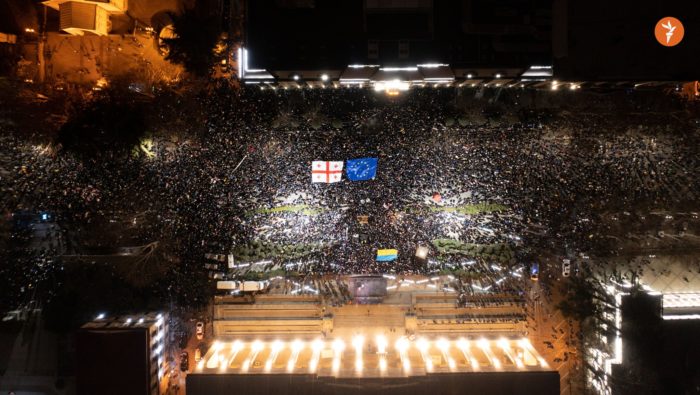
In the end, Georgia fears that the presence of so many Russian citizens, Georgian's strong support of Ukraine and the country's proximity to the Russian Federation could serve as a pretext for further Kremlin intervention or influence in its affairs.

